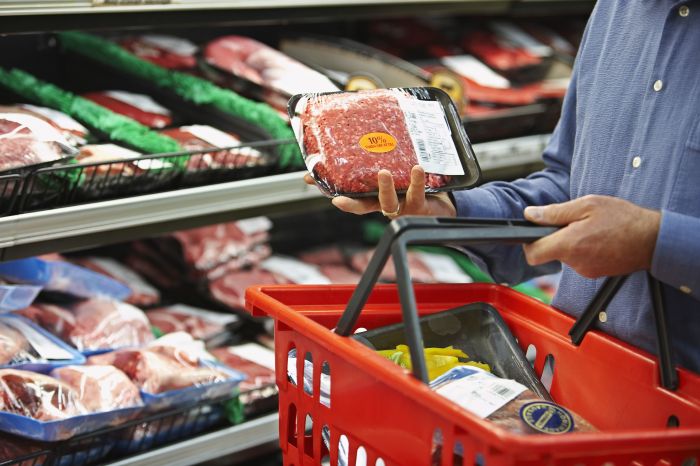When can raw unpackaged meat be offered for self service – When can raw unpackaged meat be offered for self-service? This question raises important considerations regarding food safety, regulations, and best practices. Delving into the intricacies of this topic, we explore the potential risks and benefits associated with self-service raw meat offerings, examining industry regulations and guidelines, and discussing alternative methods for providing consumers with access to this essential food item.
The content of the second paragraph that provides descriptive and clear information about the topic
When Can Raw Unpackaged Meat Be Offered for Self-Service?: When Can Raw Unpackaged Meat Be Offered For Self Service

The self-service of raw unpackaged meat poses potential risks to consumers due to the possibility of cross-contamination. However, with proper regulations and best practices in place, it can be offered safely.
Definition of Raw Unpackaged Meat
Raw unpackaged meat refers to fresh or frozen meat products that are not enclosed in any protective packaging, such as plastic wrap or butcher paper. This includes cuts of beef, pork, poultry, and fish.
Examples of raw unpackaged meat products include:
- Freshly cut steaks
- Ground beef
- Whole chickens
- Fish fillets
Regulations for Self-Service of Raw Unpackaged Meat, When can raw unpackaged meat be offered for self service
The self-service of raw unpackaged meat is governed by regulations that vary depending on the jurisdiction. These regulations typically cover:
- Proper handling and storage temperatures
- Sanitation and hygiene requirements
- Responsibilities of retailers and consumers
Retailers are responsible for ensuring that raw unpackaged meat is handled and stored safely, while consumers are responsible for following proper handling and hygiene practices.
Potential Risks Associated with Self-Service of Raw Unpackaged Meat
The primary risk associated with self-service of raw unpackaged meat is cross-contamination. Cross-contamination occurs when harmful bacteria or pathogens from one food product are transferred to another food product. This can happen when consumers touch raw meat and then touch other food items, or when raw meat juices drip onto other products.
Cross-contamination can lead to foodborne illnesses, such as:
- E. coli
- Salmonella
- Campylobacter
Best Practices for Self-Service of Raw Unpackaged Meat
To ensure safe self-service of raw unpackaged meat, retailers should follow best practices, including:
- Proper display and storage techniques
- Effective labeling and consumer education measures
- Regular cleaning and sanitization
Consumers should also practice proper handling and hygiene, such as:
- Washing hands before and after handling raw meat
- Using separate cutting boards and utensils for raw meat
- Cooking meat to a safe internal temperature
Alternative Methods for Offering Raw Unpackaged Meat
In addition to self-service, there are alternative methods for offering raw unpackaged meat to consumers, including:
- Pre-packaged meat
- Assisted-service meat
Pre-packaged meat is enclosed in protective packaging, which reduces the risk of cross-contamination. Assisted-service meat is handled by a butcher or other trained employee, which provides an opportunity for consumers to ask questions and receive guidance on proper handling.
Clarifying Questions
Can all types of raw meat be offered for self-service?
No, certain types of raw meat, such as ground beef and poultry, pose higher risks of contamination and are typically not suitable for self-service.
What are the key responsibilities of retailers in ensuring safe self-service of raw meat?
Retailers must maintain proper storage temperatures, prevent cross-contamination, provide adequate labeling, and train staff on proper handling practices.
What are some alternative methods for offering raw unpackaged meat?
Alternatives include pre-packaged options, assisted-service counters, and online ordering with delivery or pickup.


